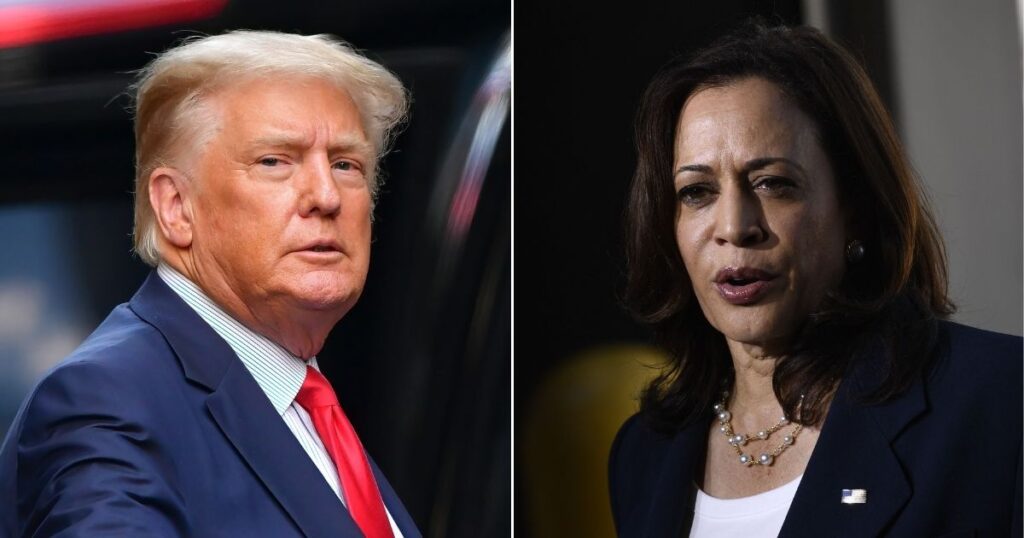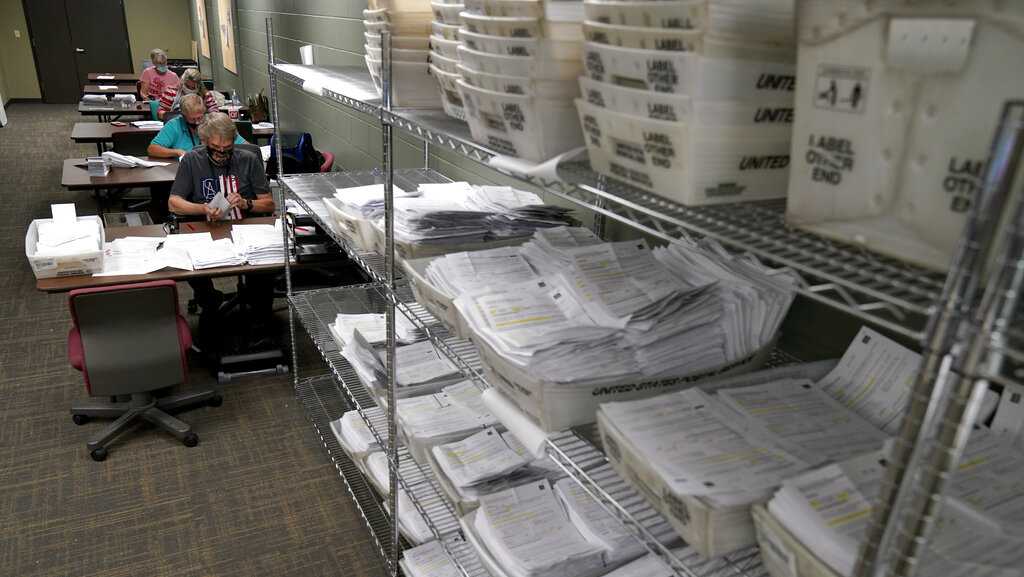Politics
Election Certification Challenges Surge Ahead of November
Four years after the presidential election certification challenges that incited the Capitol riots, disputes over election processes are escalating nationwide. Republicans in battleground states are particularly vocal, where election outcomes can hinge on a few thousand votes. These challenges to the electoral process are intensifying as parties gear up for upcoming elections. The impact of these disputes raises concerns about the integrity of future elections across the United States.
Rising Tensions Among Local Election Boards
Nationwide, concerns are mounting about the authority of local election boards. These boards are questioning or even attempting to invalidate election results. In closely contested states like Georgia, Michigan, Nevada, and Wisconsin, the presidential race between former President Donald Trump and Vice President Kamala Harris is particularly vulnerable.
Escalating election certification challenges threaten democracy, highlighting the urgent need for transparent processes and bipartisan cooperation, according to wsj news.
Uncertainty Surrounding Pennsylvania’s Election Outcome
Republicans cite voter fraud as a significant concern in the current electoral landscape. Meanwhile, Democrats fear that conspiracy theorists among local officials may refuse to certify results. This scenario risks creating a complex legal quagmire that could impede the electoral process. Any resulting delays may ultimately undermine the integrity of the upcoming November election.
Controversial Regulations in Georgia
In Georgia, Trump-aligned members of the state election board have enacted controversial regulations. These rules may empower local boards to investigate and potentially delay the certification process. The Democratic National Committee and Georgia Democrats are set to argue before a state judge that these changes could lead to chaos in the upcoming presidential election.
Ben Berwick, head of election law at Protect Democracy, emphasized that certification is a mandatory obligation. He noted that election officials are responsible for confirming that canvassing and tabulation have been completed, ensuring official results.
Legal Challenges to New Certification Rules
Democratic plaintiffs in Georgia have contested new certification rules before they take effect. One rule, known as the “Reasonable Inquiry Rule,” allows election officials to perform a “reasonable inquiry” before certifying results. Critics argue this could enable partisan members to challenge or reject outcomes.
Another rule, the “Examination Rule,” permits county board members to scrutinize election-related documents prior to certification. Defenders of the regulations argue they provide essential tools for verifying vote counts.

Harris and Trump Face Off in Debate
Harris and Trump face off in debate: Vice President Kamala Harris and former President Donald Trump, who have never met in person…
Legal Threats Deter Certification Challenges
In Michigan, the ACLU filed a lawsuit against a Republican canvasser in Kalamazoo County over alleged threats to not certify the presidential election. The canvasser, Robert Froman, denied making such threats and signed an affidavit to commit to non-interference in the election process.
Kalamazoo County has over 215,000 registered voters and has leaned Democratic in recent presidential elections. When asked if he would certify the election under similar circumstances to 2020, Froman indicated he would not, a statement raising further concerns.
Nevada’s Supreme Court Dismisses Lawsuit
In Nevada, the state Supreme Court recently dismissed a lawsuit from Secretary of State Francisco Aguilar. This lawsuit aimed to compel Washoe County commissioners to certify an election. Although the commissioners eventually certified the election, the court’s ruling was significant. The court left the door open for Aguilar to raise the issue again if necessary in the future.
Arizona’s Legal Hurdles
In Arizona, a federal judge blocked a state provision allowing the Secretary of State to certify results without local officials. The judge’s ruling emphasized the need to protect voters’ constitutional rights during the certification process. This decision reflects ongoing concerns about election integrity and voter protection. Ensuring that local officials are involved is crucial for maintaining public trust in election outcomes.
Election Experts Optimistic Amid Challenges
Despite the ongoing disputes, several election experts believe that laws will compel local boards to certify results this year. Gideon Cohn-Postar from the Institute for Responsive Government voiced concerns about narratives surrounding certification. He warned that these narratives could lead to conspiracy theories. Such theories may complicate the electoral process even further. The integrity of the certification process remains a critical issue amid these ongoing disputes and concerns.
Recap of Certification Disputes Since 2020
The challenges to certification processes began surfacing in 2020, notably in Michigan, where officials briefly obstructed Biden’s victory certification. Reports later revealed attempts by Trump and the RNC to influence the board’s decision.
Similar obstruction efforts persisted during the midterm elections, with some counties facing judicial orders to certify results. In New Mexico and North Carolina, county commissions encountered delays due to allegations of voting irregularities, but ultimately, all votes were certified. Officials resisting certification often faced severe repercussions.
In light of these ongoing challenges, the integrity and efficacy of the election certification process remain in question as the nation approaches the November elections.
Join our community of curious minds and engage in lively discussions. Secure a Barron’s Digital Membership today for three years of unlimited access to Barron’s and The Washington Post.

